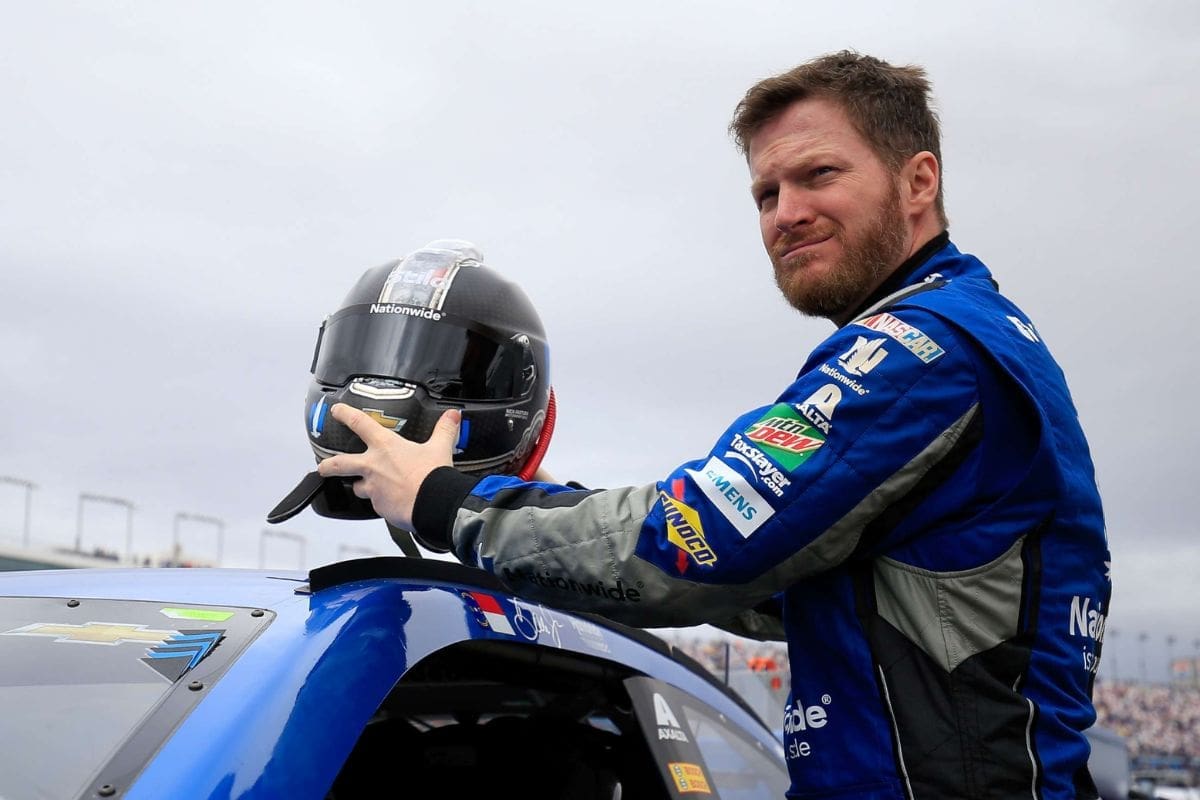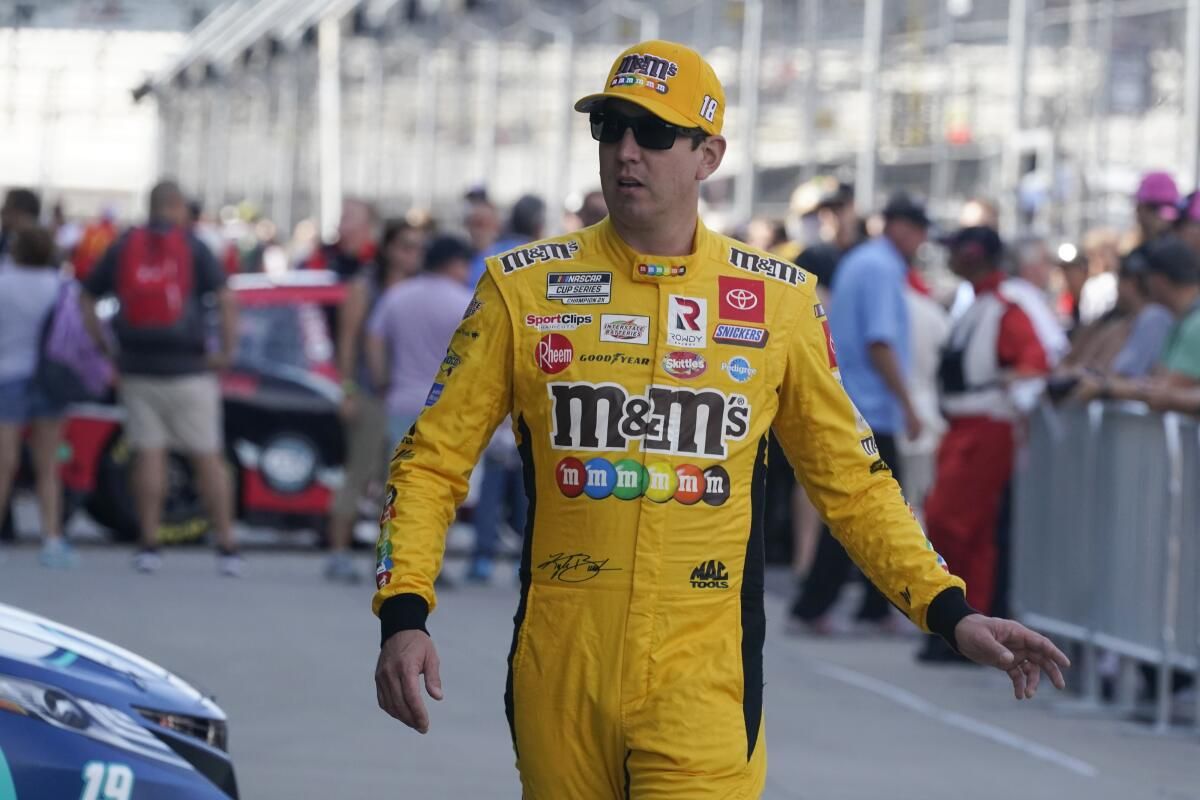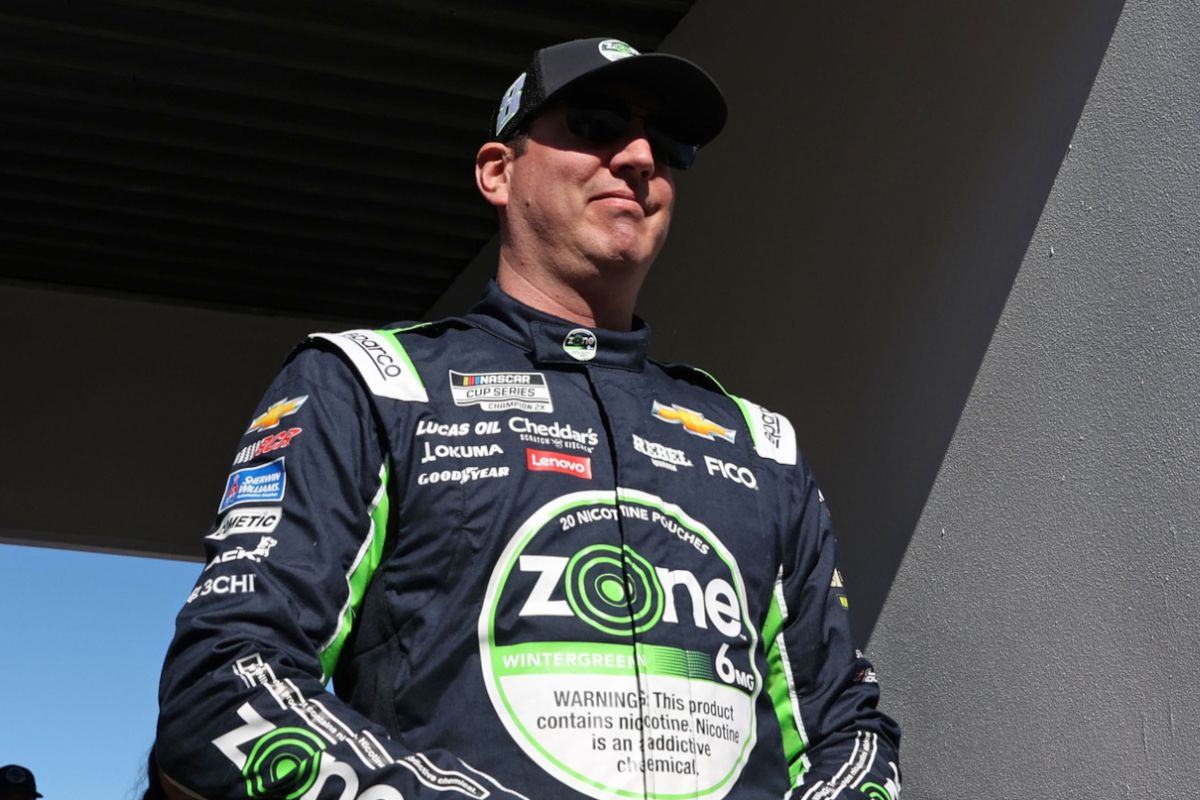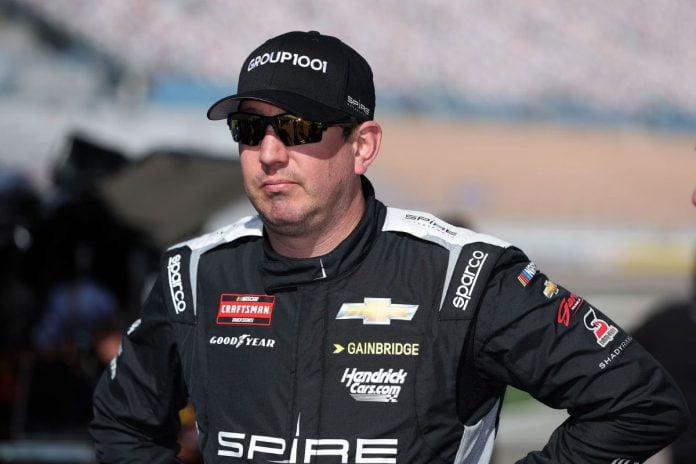Kyle Busch Blames Jimmie: Kyle Busch’s recent critique of Jimmie Johnson casts a spotlight on the broader discourse concerning the necessary lifestyle for racing supremacy. Busch says that while maintaining peak physical condition is certainly advantageous, it is not the essential factor for track success.
Key Takeaways
- Kyle Busch criticizes the emphasis on strict health regimes, as promoted by Jimmie Johnson, in enhancing racing performance.
- Busch believes that car performance and strategic team decisions are more crucial to racing success than a driver’s fitness level.
- The debate highlights contrasting views within NASCAR on the impact of personal health and fitness on professional racing outcomes.
- This discussion reflects NASCAR’s evolving standards, shifting from a focus on individual personalities to more regulated, professional practices.
- Busch’s stance challenges the current cultural shift in NASCAR towards greater professionalism and health consciousness in the sport.
NASCAR’s Rigid Rules and Historical Context
NASCAR’s shift from a loose regulatory framework contrasts with its more hands-off past, reflecting significant changes in the sport’s governance and culture. Originally characterized by a free spirit, the early days of NASCAR bore witness to a culture where personal freedoms often took precedence over strict codes of conduct. Veteran racers like Dale Earnhardt Jr represented this old-school ethics, where indulging in vices wasn’t uncommon and was somewhat integrated into the racer’s lifestyle.
Over the years, NASCAR has strategically moved towards a more regulated environment, introducing detailed regulations that govern not only the technical aspects of the race cars but also the conduct of the drivers and teams. This shift was driven by several factors, primarily the essential to enhance safety protocols and the need to professionalize the sport’s public image.
The evolution from a relaxed regulatory stance to a strict one is indicative of NASCAR’s response to the growing demands of broadcasting, commercial partnerships, and global fanbase expectations.

Dale Earnhardt Jr.’s Contrasting Lifestyle
Reflecting on NASCAR’s evolution in driver conduct and vehicle safety, Dale Earnhardt Jr’s personal journey presents a contrast with a lifestyle that is miles away from the emerging health-centric norms of professional racing. While the sport increasingly embraced strict physical fitness and dietary regimes, Earnhardt Jr’s approach was more relaxed, emphasizing comfort and personal satisfaction over health restrictions.
The expectation from the Hendrick Motorsports team to adopt a fitness regimen like that of Jimmie Johnson, a teammate known for his dedication to physical conditioning. While Johnson’s methodology represented a modern, holistic approach to driver performance, focusing on endurance and strength to handle the grueling demands of racing, Earnhardt maintained a more traditional. This was characterized by less emphasis on structured fitness programs and more on natural talent and experiential learning from the race track.
Kyle Busch’s Perspective on Health and Racing
During his appearance on The Pat McAfee Show, Kyle Busch critiqued the prevailing belief in NASCAR that strict health regimes directly correlate with enhanced racing performance. Busch, a seasoned racer, shared his personal experiences, noting that despite following fitness protocols, he observed only minimal improvements in his racing outcomes.
“Jimmie ruined it for a lot of us. Dale isn’t the only one that had the Jimmie Johnson factor, that came upon him. For me too, I got yelled at from a crew chief. I was getting a little chunky, a little heavy and all that. He was like, ‘You need to work out. You need to eat better. You need to sleep a little more.’ I was like, ‘Okay, sure great. Whatever.’”-Busch
Busch argued that the quality of the car and the team’s performance are far more essential to success on the track than the driver’s personal health regimen. His insights prompt a reevaluation of priorities within NASCAR circles, suggesting that while fitness is beneficial, it may not be the ultimate determinant of racing success. This subtle understanding invites teams and drivers to balance their focus not just on physical fitness but also on enhancing mechanical and strategic aspects of racing.
“So I spent six months in the gym, working out, slimmed down, lost some pounds, and what not. The results didn’t change. Nothing happened. It’s all about the horse you’re riding, it’s all about the car you got. So there’s another driver out there. He said you can’t drive a slow car fast. I mean, that’s the truth of the matter. And Jimmie was always in a fast car but he also had everything right and was going the right way about it.”-Busch

Dick Trickle: A Racing Legend’s Unconventional Style
While Kyle Busch highlights the minimal impact of personal health regimes on racing performance, Dick Trickle exemplified a contrasting approach through his casual and unconventional style during his racing career. Trickle, a celebrated figure in motorsports, was notorious for his laid-back attitude towards the demands of racing, often seen smoking cigarettes even during competitions. This was most famously captured during a caution at the 1990 Winston 500, where he was spotted lighting a cigarette in his car.
“He would show up to the race track with a Coors Light in one hand, and a cigarette in the other. They wouldn’t let him in the car with the Coors Light, but they let him in the car with a cigarette. He had’em taped to his roll bar and had an open-face helmet. So while the race is happening, he would just reach over there, grab a cigarette, light it up and he’d be smoking under yellow.”-Busch
His career, which saw him competing successfully across four decades, suggests that personal habits, no matter how unconventional, might not directly correlate with professional decline or success.
This deviation from the norm did not just serve as a personal trademark but also challenged the prevailing expectations of athlete conduct within the racing community. Trickle’s style invited critique and admiration, showcasing that the essence of racing might lie as much in personal resilience and passion as in strictly addressing to conventional training and health regimes.
Evolving Landscape: From Badass Legends to Modern Racing Standards
The evolution of NASCAR from the rough, rule-bending habits of historical figures like Dick Trickle to today’s highly regulated and professional era marks a significant shift in the culture and practices of motor racing. This transformation reflects broader changes in societal values towards safety, professionalism, and the image of sports as wholesome family entertainment.
| Aspect | Past Era | Modern Era |
|---|---|---|
| Regulations | Lax, allowing more personal flair | Strict, with detailed standards |
| Driver Persona | Rebellious, individualistic | Professional, team-oriented |
| Safety Standards | Minimal, often overlooked | Rigorous, with high importance |
| Public Perception | Niche, with a cult following | Broad, mainstream appeal |
| Sponsorship | Local, often personal businesses | Major corporate brands |
This evolution, while perhaps dampening the wild, unpredictable nature that once defined NASCAR, secures its sustainability and relevance in a society that increasingly values safety and professionalism. This strategic shift not only guarantees a safer environment for drivers but also enhances NASCAR’s appeal to a global audience.

News in Brief: Kyle Busch Blames Jimmie On Racing Lifestyle
The ongoing debate within NASCAR about the role of lifestyle choices in racing performance reveals a dynamic tension between traditional and modern perspectives. Kyle Busch’s critique of the emphasis on strict health regimes challenges prevailing norms. This dialogue not only mirrors the evolution of the sport but also emphasizes the importance of considering a combination of factors—vehicle excellence, strategic team decisions, and driver skill—for achieving prominence in competitive racing.
Our Reader’s Queries
Q: What are some fun facts about Kyle Busch?
A: Busch holds the record for the most all-time NASCAR national series wins with 229 victories, spread across 63 in the Cup Series, 102 in the Xfinity Series, and 64 in the Truck Series.
Q: Why is Kyle Busch famous?
A: Busch boasts numerous NASCAR records, notably securing the most wins in a single season across the top three series in 2010, totaling 24 victories. With 230 wins across NASCAR’s national touring series, he maintains an unmatched legacy.
Q: Why did Kyle Busch leave?
A: It appears the sponsorship challenges at Joe Gibbs Racing were more severe than anticipated. Kyle Busch recently disclosed that the team struggled to secure sponsorship after Mars Inc. and M&M’s withdrew from NASCAR in 2022.
Also Read: Nick Sanchez’s Texas Heartbreak: Dreaming of Victory Lane, Denied by Kyle Busch


